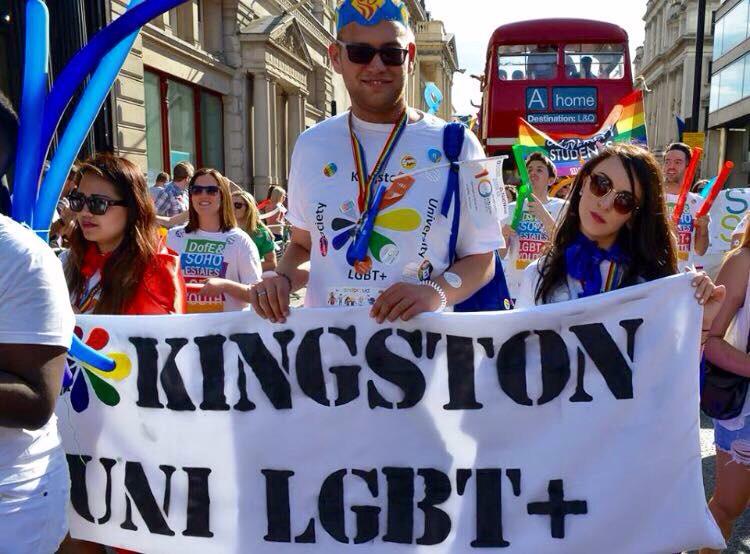Kingston University has “extremely little” homophobia with only eight per cent of lesbian, gay, bisexual and transgender students having experienced harassment on campus, The River found.
According to NUS research, 20 per cent of LGBT+ students around the UK have experienced name calling, threats of intimidation and harassment at university.
Second year Sophie Wright, 20, who identify herself as gay and genderqueer, said: “Ninety-nine per cent of LGBT+ people I know at Kingston are very happy with the atmosphere and sense of acceptance while studying here.
“For that reason Kingston really stands out as something special to me,” she said.
Sophie explained that having unisex bathroom facilities on every campus help “the marginalised groups hold their heads high” and both staff and students have been very accepting.
Both a KU spokesperson and an LGBT+ committee member, Stephanie Bushby, 21, said they have not been made aware of any current LGBT+ harassment instances.
The River found that one in four KU students identify themselves as part of the LGBT+ community, with 10 per cent as bisexual and seven per cent as “other” including pansexual, genderqueer, genderfluid and asexual.
Kathleen Lopez, 22, said she experienced being shouted at while holding hands with her girlfriend on one occasion at Penhryn road, but would not classify it as harassment and said: “it’s nothing compared to other parts of London.”
Second year psychology student, Rose Martin, 21, said: “A lot of people I’ve met at UNI have been very different to everyone else I’ve experienced in my life, they’ve been so open-minded.
“We [the KU LGBT+ society] are providing people with a safe place where they are not judged, we don’t even ask about their sexuality,” she added.
Nearly two thirds of KU LGBT+ students and 77 per cent of heterosexual students feel completely safe on campus compared to only 37 per cent of LGBT+ students and 43 per cent of heterosexual students nationally.
“We have put together an online training module for staff called Equality Essentials, which includes a section about LGBT+ issues,” a KU spokesperson said. “The University will not tolerate bullying or harassment and will take action to protect the dignity of all staff and students.”
The Student Wellbeing service at KU offer support for the LGBT+ community including counselling and confidential support to anyone experiencing harassment through the Harassment Contact Scheme.
A second year drama student who prefers to be anonymous said the only form of harassment she has experienced at KU is a “battle between the sexes” and misogynistic remarks. While living in halls, she said that a guy expected her to do the cleaning and cooking simply because of her gender.
She said that KU was still like a “safe place” because of its diversity and she finally felt comfortable enough to come out once starting university last year.

